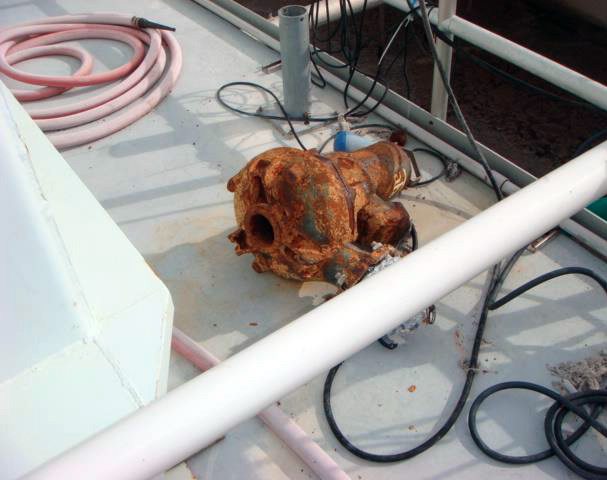City likely to incur fines
The state Department of Environmental Protection sent a warning letter last week to the City of Marathon. Two of the city’s wastewater plants are “significantly” out of compliance. Among the findings from site visits conducted on June 16 were “bypasses” — temporary pipes that sidestep part of the standard filtration and disinfection process before the wastewater is injected into a shallow well. The DEP noted the bypasses “result in a high potential for water quality or health impacts.”
According to Deputy City Manager George Garrett, city officials have already sat down with DEP and are taking steps to correct the issues outlined. He said that although many fixes are underway, the deficiencies will likely result in a fine to the city of $10,000 or less.
“The items that relate to fixing the plants are already underway. We’ve ordered the equipment,” Garrett said. “Those will help us address the other faults because we will have the ability to define the parameters.”
Other findings:
- At plant 3, two separate unauthorized bypasses were reported on March 14-21 and June 3. At plant 4, an unauthorized bypass happened March 21-May 2. Plant 3 is located next to Marathon Community Park and Plant 4 is located next to McDonalds. The bypasses were used to handle moments when the wastewater flow was too much, and also when the centrifuge was in operation to help clear the tanks of solids.
- The 51-page report also found inoperable machinery that relates to the sampling of wastewater and the measurement of flow. In some cases, these deficiencies pre-date the city’s operational control of its wastewater facilities, and the two previous contractors — Severn Trent and U.S. Water.
- The city also has no permits to operate the centrifuge de-watering equipment at Plants 3 and 5. The equipment separates solids and liquid, allowing the city to cart away the sludge to the mainland. According to DEP, use of the centrifuge may also contribute to the plugged filter membranes, recently replaced.
- Problems continue to plague plant 5, at the end of the airport. It was most recently inspected in April by DEP officials following up on a list of fixes issued six months prior. It found crumbling concrete, inoperable samplers, and a long extension cord between two pieces of equipment to bypass a dead power outlet. The DEP also blamed a non-functioning computer backup battery for a 20,000 gallon spill in August of 2014 at Plant 5 after a late-night power outage.
Garrett said the city will apply for permits to operate the centrifuge at all of the plants. The rest of the plan to bring the city’s wastewater plants into compliance will be formalized once the wastewater consultant is finished with the study.
“We’ve hired Wade Trim to conduct a capacity study of our collection and treatment plant’s capacity,” Garrett said. “The report is due at the end of August and that will help us determine how to handle additional flow, among other things.”
City officials continue to examine the almost $1 million cost of the force main and pumps associated with district 3 that serves the Marriott Courtyard, Hyatt Place and the future 200-room resort on Knights Key. Garrett said officials have possibly found a $60,000 savings on the piggy-back contract between the Florida Keys Aqueduct Authority and Layne Heavy Civil Inc.
Previously, three of the city’s plants were operated by a contractor, Severn Trent. It opted out of its contract early and vacated the premises on May 22.



























